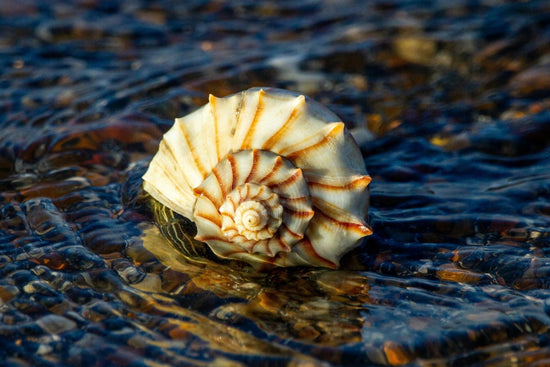Plus, 9 Ways to Support Your Mental Health
2020 was a rough year for everyone, and unfortunately there’s still not a whole lot of light at the end of the tunnel. As predicted, the inherent viral seasonality and increased time spent indoors during colder weather caused a spike in COVID cases. And now we’ve now entered winter, a period of the year known for causing seasonal depression.
So now, along with all the stressful news headlines and the dark cold days of the season, we’re locked inside our homes and forced to distance ourselves from others. It’s truly a perfect storm for our mental health.
As we continue to get more bad news, we’d love to tackle the issues we care deeply about. Sea Witch Botanicals was built around the change we want to see in the world, in terms of social justice and environmental health. So sure, all of us here would be thrilled to see people step up in any way they can to help the environment, but until our mental health is strong, we’re not in a great place to be changemakers. As they say, one cannot pour from an empty glass.
Dealing with seasonal depression and anxiety
Seasonal Affective Disorder (SAD) is a type of depression that occurs with seasonal change. It tends to come on in the fall as daylight begins to wane, and continue into the winter months. Areas farthest from the equator, where there’s a lot less sunshine in the wintertime, have higher levels of people who experience SAD. Symptoms include mood swings, lack of energy, feeling depressed, and problems with sleep.
The reduced amount of sunlight can throw off our bodies’ circadian rhythms and change our natural hormone levels. Less sun can lead to a drop in serotonin, our “feel good” hormone, and disrupt the body’s level of melatonin, which plays an important role in our sleep patterns.
When we’re already struggling with the ongoing stress of things like political upheaval, riots, and a global pandemic, it can almost seem unfair that it has to be winter. While it’s normal to experience a slight change in mood and energy during the dark months, SAD can lead to further issues if it’s not treated.
If you experience a downshift in your emotional health this time of year, you’re not alone. And if you’re feeling yourself sinking lower this year than usual, it makes perfect sense. Be kind to yourself and keep in mind that not only is there hard science behind the changes in your mood, but on top of that we’re all under a lot of stress on a global level.
Your brain on stress
Look, we all know that stress isn’t good for us. But did you know that it has a big effect on your health, and can actually change the structure of your brain? Chronic stress can alter the balance of white matter and gray matter, with long-lasting effects. This can lead to problems with decision-making and problem-solving.
Mental health issues mostly affect the amygdala, prefrontal cortex, and hippocampus. These areas are key for cognition, attention, emotions, and memory. Over-activation of the ventromedial prefrontal cortex may enhance irrational fears, limiting self control and making it more difficult to make logical decisions.
Stress can also cause inflammatory proteins to enter the brain, affecting motivation and mental agility. So yeah, who can get out there and fight for the environment with an inflamed brain? How can you save the planet when your decision-making skills, attention, and moods are out of whack?
Support your mental health

We urge you to support your mental health before all else this season. If you’re struggling with suicidal thoughts, please contact the Suicide Prevention Lifeline or the Crisis Text Line immediately.
9 Everyday Ways to Support Your Mental Health
Here are 9 things you can do to take care of yourself, despite the pandemic and lockdown rules:
- Practice mindfulness. Mindfulness has been shown to relieve stress and help us stay calm in challenging situations. You can practice mindfulness at any time of day. Try journaling, going for a mindful walk, or mindful dishwashing.
- Add more movement into your life. Exercise, dance, stretching -- movement supplies oxygen to the brain and envelops us in feel-good hormones. It can also help the body to get better sleep, and good sleep is essential to a healthy mind.
- Try natural remedies. Medicinal mushrooms and adaptogenic herbs may help relieve stress, anxiety, and depression. Do your own research to find out what resonates with you.
- Spend more time outside in nature. Get outside, walk around, and connect with nature. Being in nature is wonderfully healthy for our brains. Garden if you have the space - caring for the environment can be really great for your mental health. Take a walk in the woods and bask in the glory of the forest while soaking up the physical benefits. The essential oils released from trees reduce cortisol levels and relax the brain.
- Incorporate yoga & meditation into your daily routine. Studies show that these practices can be highly beneficial for cultivating mental resilience and reducing stress. Find meditation difficult? Try a guided meditation.
- Purify your space. Physical clutter contributes to mental clutter - try “Marie Kondo-ing” your life. Fill your air with beautiful scents and bathe in the healing powers of essential oils.
- Improve your sleep. Sleep is essential to your mental health and will affect every other aspect of your life. While this can be difficult to tackle, there are certain things that may help you to get better sleep. Try sleeping on a pillow spritzed with calming lavender essential oil, or drink reishi tea before bedtime.
- Take care of your spiritual health. Take part in activities that are aligned with your values, practice expressions of compassion, and make time for the things that bring meaning to your life.
- Try online therapy programs. Talk therapy exists for a reason, and we could all use it (especially when we’re distanced from so many loved ones). Luckily for all of us going through lockdowns, online therapy programs have gotten pretty popular. Talkspace and BetterHelp have been highly rated.
Mental health is the foundation we must sculpt and strengthen before we can expect the other pillars of our lives to stand solid. So take a break, take a breath, and go easy on yourself this winter.
If you have any practices that you use to take care of your mental health, please let us know in the comments!





